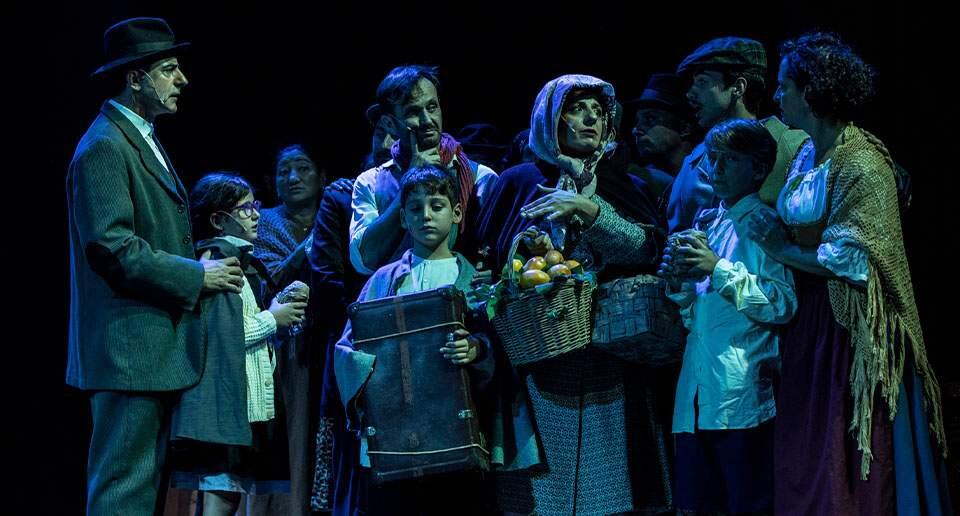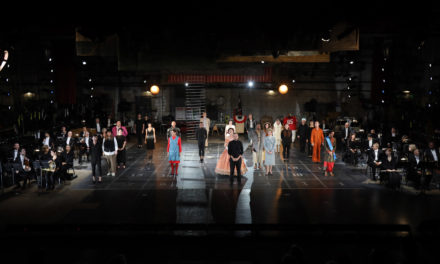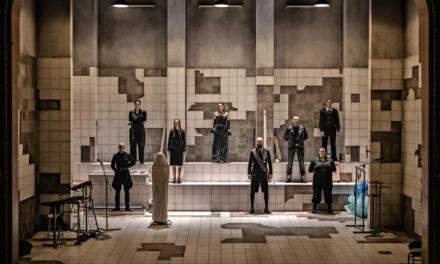The Trianon Viviani Theatre had offered a new chapter of the special project “Viviani on the Road” (“Viviani per strada”), created and directed by the famous actor Nello Mascia as an homage to the playwright Raffaele Viviani (1888-1950). In the third part, from 23rd to 25th September, 2022, was proposed the staging of other two one-act plays in Neapolitan: ’O cafè ’e notte e ghiuorno (Caffè di note e giorno), and ’Nterr’ ’a ’Mmaculatella (Scalo marittimo). The first play was written in 1919; the other in 1918. They both narrate everyday life in two emblematic points of the town of Naples: a coffee house and the port.
The streets and the quarters of Naples were the natural sources of inspiration for Viviani. In these two plays, he focused his attention on the difference between rich and poor: his dramaturgy contains many social elements that are still relevant, after a century. The variety of people who frequent the coffee shop or embark on a ship to America is picturesque, but each voice has a story made of suffering and hopes. Poverty is the predominant element, but is counterbalanced by self-irony and high human dignity. Love is always passionate and marked by jealousy, which often makes life impossible.
The coffee shop is frequented, both day and night, by different customers: they have different problems (a homeless family, a desperate prostitute, a poor playwright looking for inspiration, gamblers), but honesty remains the main value that Viviani wants to convey to the audience. Even the passengers of the ship have different problems to solve in America (a betrayed husband, a frivolous heiress, and many desperate people looking for work), but the choice to emigrate is crucial for everyone. The poor migrants are victims of a cruel controller (almost a circus tamer with a whip in his hand) who treats them like beasts, manages their passports and medical certificates, and uses their money. In this climate of oppression, all are united by a strong sense of human solidarity. The pain of the migrants from Southern Italy of a century ago is not very different from that of the global migrants of the New Millennium. While the siren sounded and the ship left the port of Naples, on a screen the people could see some historical films of the Italian emigration to the United States, together with the images of the migrants of our times: there could be no better way to emphasize Viviani’s actuality and his social message.
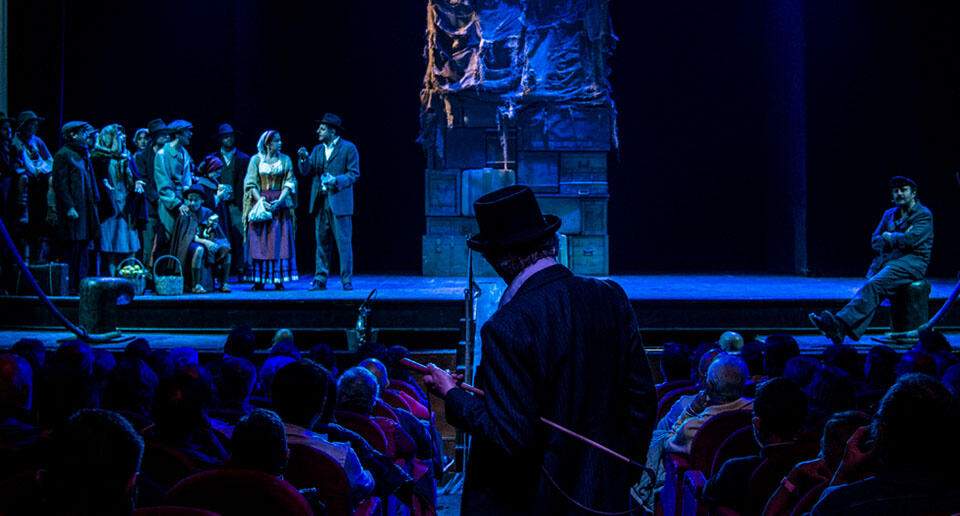
Viviani per strada. Photo by Pino Miraglia. Courtesy of the Trianon Viviani Theatre in Naples.
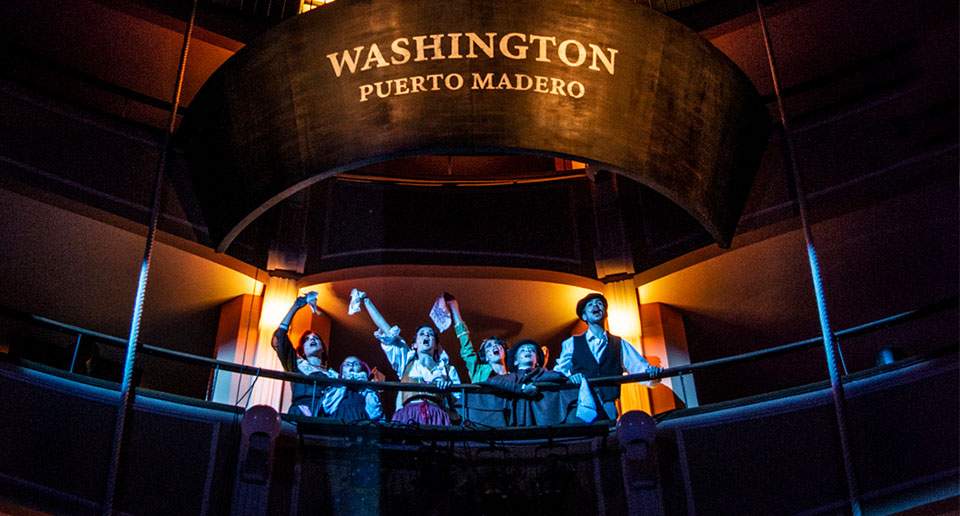
Viviani per strada. Photo by Pino Miraglia. Courtesy of the Trianon Viviani Theatre in Naples.
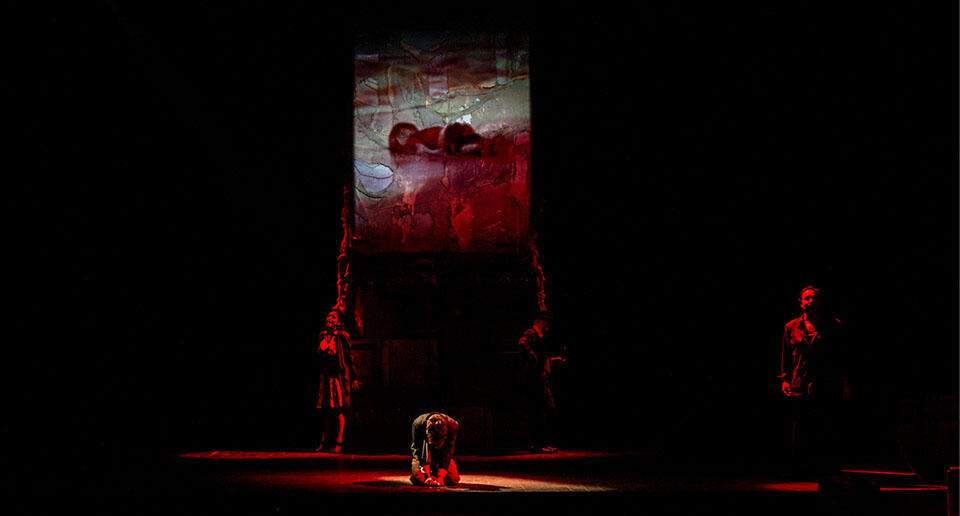
Viviani per strada. Photo by Pino Miraglia. Courtesy of the Trianon Viviani Theatre in Naples.
Also on this occasion, the two shows had an excellent cast of actors and musicians, with beautiful costumes. The direction of Maestro Nello Mascia is excellent, confirming his deep knowledge of Viviani’s dramaturgy. The scenography cleverly used the stalls and the stage of the Trianon Viviani Theater, in order to recreate the port of Naples and that border area between land and sea, which is full of anxieties for the journey and for the future.
The special project “Viviani on the Road” corroborates the international value of the productions of the Trianon Viviani Theater. A special mention to the theatre staff, who always welcomes the audience with great professionalism and courtesy: citizens and tourists could live a very positive experience in the ancient center of Naples, enjoying its artistic excellence.
This post was written by the author in their personal capacity.The opinions expressed in this article are the author’s own and do not reflect the view of The Theatre Times, their staff or collaborators.
This post was written by Maria Pia Pagani.
The views expressed here belong to the author and do not necessarily reflect our views and opinions.

